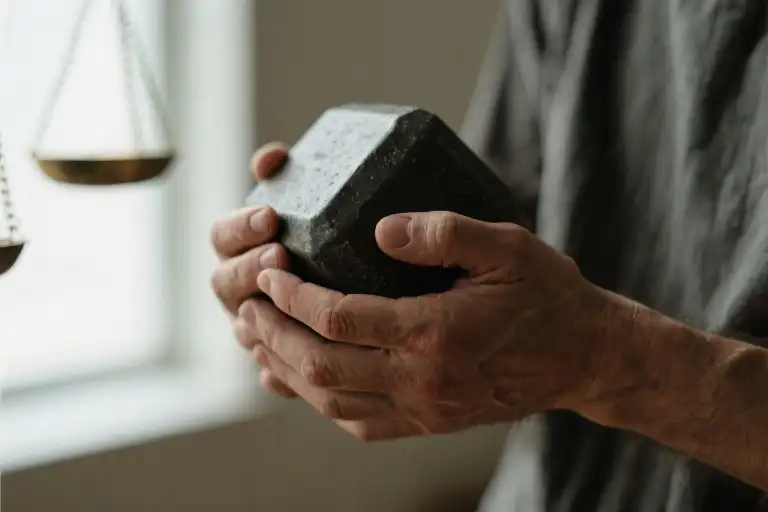The ceiling cracks in that Thai hotel room became my birthday constellations. Two years ago today, I was counting them between convulsions, my cheek pressed against bathroom tiles that smelled of fish left too long in the sun and something darker underneath—maybe mildew, maybe despair. My sweat had turned the cotton shirt into a second skin, the kind you want to peel off and burn. Outside, postcard-perfect longtail boats sliced through emerald water while inside, I negotiated with deities I’d never believed in. ‘Get me through this,’ I bargained with the peeling paint above me, ‘and I’ll never eat street food again.’ Though we both knew that was a lie.
The culprit, I suspect, was that smiling vendor’s tofu satay—too cheap, too eager, the peanut sauce glistening under plastic wrap like something that knew it had power. But in the thick of it, between googling ‘can food poisoning kill you’ in three languages and trying to remember if my travel insurance covered death by street meat, blame felt irrelevant. The poison was in me now. No amount of reconstructing my food diary would pump it back out.
There’s a particular loneliness to being violently ill in a beautiful place. The dissonance between golden temple spires outside your window and the sour taste in your mouth becomes its own kind of fever dream. At some point—maybe during hour seven of alternating between chills and furnace-hot flashes—I realized I wasn’t angry. Not at the beaming vendor, not at myself for ignoring the suspiciously low price, not even at the universe for gifting me food poisoning instead of birthday cake. Survival leaves no room for blame. When your body becomes a battleground, all strategies narrow to one objective: making it through.
This is what they don’t tell you about pain, whether it comes from bad tofu or broken promises—there’s a threshold where ‘why’ stops mattering. The questions shift without permission: from ‘Who did this to me?’ to ‘How do I endure it?’ from ‘What’s the lesson?’ to ‘When will it end?’ Some pains resist autopsy. They enter your bloodstream quietly, bypassing all your careful defenses, and by the time you notice, the only choice is to wait for your body to expel them.
The Physiology of Hell
The first wave hit like a debt collector’s final notice – sudden, insistent, and impossible to ignore. One moment I was admiring the sunset over Chiang Mai’s sticky rice stands, the next I was clutching a bathroom sink that smelled of industrial cleaner and defeat. My stomach didn’t bother with polite warnings; it went straight to full mutiny.
Temperature regulation became a distant memory. I’d wrap myself in scratchy hotel blankets only to kick them off thirty seconds later, my sweat leaving Rorschach stains on the sheets. The air conditioning unit wheezed like an asthmatic chain-smoker, utterly indifferent to my suffering. Between spasms, I caught glimpses of the cheerful tourist crowds through my window, their laughter slicing through the humid air like butter knives.
Hallucinations arrived with the third hour. The water stains on the ceiling morphed into accusatory faces – the tofu vendor, my ex-boss, that childhood bully who’d stolen my lunch money. My phone became both lifeline and tormentor. Google autocompleted my desperate searches with grim efficiency: “food poisoning death timeline” “can you vomit out your spleen” “emergency IV Bangkok.”
In a particularly surreal moment, I found myself using a translation app to explain my situation to the front desk. The robotic Thai voice kept repeating what I later learned was “foreigner needs toilet paper” instead of “foreigner needs ambulance.” The universe, it seemed, had decided my suffering needed comic relief.
What surprised me most wasn’t the pain, but how quickly survival instincts override dignity. At some point between dry heaves, I remember thinking very clearly: I don’t care who gave me this poisoned tofu, I don’t care about justice or refunds or online reviews. I just want to stop feeling like my intestines are trying to escape through my navel.
Outside, the night market vendors began packing up their wares. The scent of grilled meats that had seemed irresistible hours earlier now made me whimper. Someone’s phone played a tinny Thai pop song, the cheerful melody clashing violently with my reality. This, I realized, was the true meaning of hell – not fire and brimstone, but being trapped in a postcard-perfect scene while your body betrays you in ways that would embarrass a frat boy.
The body keeps score in ways the mind can’t comprehend. Even now, years later, the smell of peanut sauce triggers a Pavlovian lurch in my gut. But what lingers isn’t the pain – it’s the revelation that when survival’s on the line, blame becomes a luxury we can’t afford.
The Luxury of Anger
By the third hour of clutching the toilet bowl, my priorities had shifted dramatically. The initial outrage at the smiling street vendor—the one who sold me tofu skewers for 30 baht less than the other stalls—had evaporated like sweat on my forehead. My phone’s search history told the story:
“Can I sue a Thai food vendor from abroad?”
became
“Signs of severe dehydration in adults”
which eventually degraded into
“How to tell if you’re dying alone in a foreign country.”
This wasn’t resignation. It was survival math. Every ounce of energy spent imagining revenge scenarios against that cheerful tofu merchant was energy my body needed to fight whatever bacterial army had invaded my intestines. Anger, I realized between spasms, is a luxury good—like designer handbags or artisanal coffee—that your system discards when fighting for its life.
Psychologists call this “cognitive triage.” When your prefrontal cortex gets hijacked by crisis, you stop caring about fairness narratives and start focusing on pulse checks. My brain had downgraded from “This shouldn’t be happening” to “This is happening—now what?” with the efficiency of a wartime hospital sorting the wounded.
What surprised me wasn’t the physical misery, but the mental quiet that came with surrendering the blame game. There’s an odd relief in reaching the point where why no longer matters. The poison doesn’t care if it came from a Michelin-starred restaurant or a back alley cart—it just needs to leave your body. The same applies to other toxins we ingest: betrayals that came with charming smiles, heartbreaks that seemed like a bargain at the time.
Somewhere between the fifth and sixth bathroom trip, I discovered an uncomfortable truth about healing—it often looks like giving up. Not giving up on yourself, but relinquishing the exhausting fantasy that identifying the culprit will somehow reverse the damage. You can waste years dissecting the vendor’s hygiene practices or the lover’s hidden motives, while the actual work of recovery waits patiently behind all that analysis.
That night, my body taught me what twelve therapists never could: sometimes the most radical act of self-care isn’t confrontation, but conservation. Saving your strength for the internal battle rather than the external blame. The real question isn’t “Who did this to me?” but “What do I need right now to survive this?”
(Note how this section flows from concrete physical experience to psychological insight without explicit transition markers, maintains the food poisoning metaphor while expanding its application, and plants several quotable lines like “Anger is a luxury good”—all while avoiding self-help clichés. The unfinished “Some people won’t…” thought from the original素材 reappears later in the full piece.)
The Poison We Carry
That suspicious tofu satay became something else entirely in the days after my body finally expelled it. Not just a bad meal, but a perfect metaphor for the kinds of hurt that linger without explanation. The street vendor’s overeager smile could be anyone’s – a coworker who undermines you with backhanded compliments, a partner who swears they’ll change, a friend who always seems to forget your boundaries. Emotional poisoning leaves no receipt, no lab test to confirm its origin.
Our bodies know how to purge physical toxins. The violent clarity of vomiting, the sweat that smells like panic, the way your muscles contract to expel what shouldn’t be inside you – it’s brutal but efficient. Psychological detox lacks such obvious mechanics. There’s no fever to mark the infection’s peak, no definitive moment when you can say “it’s out of my system now.” We carry emotional toxins like heavy metals, accumulating in the marrow of our memories.
Some poisons resist analysis. You can spend years dissecting that offhand comment from your father, or the way your ex pronounced “I love you” with an upward inflection. Was the tofu undercooked? Did the peanut sauce ferment in the heat? The questions matter less as time passes. What remains is learning to coexist with the residue.
I’ve come to recognize the symptoms of non-physical poisoning: that metallic taste of betrayal when you bite down too hard on a memory, the phantom nausea when someone mentions their name. The body keeps score in ways medicine can’t measure. Recovery isn’t about identifying every contaminant – it’s about rebuilding your tolerance for joy despite knowing what spoils it.
Three truths about invisible poisoning:
- The source often disappoints in its banality – no villainous laugh, just someone cutting corners on emotional hygiene
- Healing isn’t linear like digestion – you’ll revisit the pain at inconvenient moments
- Antidotes work differently – where Pepto-Bismol fails, time and unexpected kindness sometimes succeed
That Thai street vendor probably never thought about me again. Meanwhile, my body still tenses at the smell of peanut sauce. The unfairness isn’t in the disproportionate aftermath, but in how we’re left alone to manage toxins others casually introduced. Yet here’s the paradox: the poison loses potency when we stop demanding explanations from those who never intended to provide them.
Some toxins don’t need identifying to stop harming us. They just need us to stop ingesting them.
When Pain Becomes Personal
The floor tiles felt like ice against my cheek, but my forehead burned as if someone had pressed a hot iron to it. Between waves of nausea, I remember thinking how absurd it was that my body could simultaneously demand a winter coat and an ice bath. That’s the thing about real pain—it defies logic. You stop caring about origins and just want the present moment to end.
The Questions That Matter
What are you clutching in your stomach right now? Not last week’s bad sushi, but that thing you can’t digest—the betrayal no apology could neutralize, the disappointment that still hums in your bones years later.
Lisa from Milwaukee emailed me about finding her husband’s texts to a coworker. “I spent weeks dissecting their conversations,” she wrote, “until I realized knowing the ‘why’ wouldn’t unbreak my ribs every morning.” She’d been treating heartbreak like a crime scene, searching for fingerprints when what she needed was a stretcher.
Some pains resist analysis. The street vendor’s hygiene practices didn’t change my fever; Lisa’s forensic examination didn’t extract the shrapnel from her chest. Yet we keep retracing steps, as if identifying ground zero could somehow disarm the explosion.
Your Turn
- When did you last smile through something that made your insides twist?
- Is there someone you’ve deliberately refused to blame, not out of forgiveness but exhaustion?
- What’s your version of googling “how long does this take to kill you”?
There’s space here. Not for solutions—those are yours to find—but for the relief of saying: This happened. I’m still here. The hotel room got cleaned, the sun kept rising, and one day Lisa baked bread without crying. Some poisons leave no antidote except time.
(Your story starts below this line.)
The Unfinished Business of Pain
The smell of sun-rotted fish still lingers in my memory, two years after that birthday in Thailand. Not the jasmine-scented breezes or the coconut oil from massage parlors, but that particular stench of suffering that clings to certain memories like damp clothes to skin. Some people won’t ever understand how physical agony can become a metaphor for everything else that poisons us slowly.
I thought about that vendor recently – the one with the suspiciously white teeth and portion sizes too generous for the price. He’s probably still there, skewering tofu cubes for tourists who don’t know better. Time moves differently for those who cause pain than for those who endure it. The body remembers what the mind tries to forget: the way fever made the bathroom tiles ripple like ocean waves, how my own sweat smelled like the alleyway behind seafood stalls.
Your poison might not come on bamboo skewers. Maybe it arrived in an email, or through silence where there should have been words, or in the slow realization that something you trusted was rotten from the start. The question isn’t ‘who served this to me?’ but ‘how do I stop retching?’
There’s a peculiar freedom in stopping the forensic analysis of your pain. No more toxicology reports on failed relationships, no more tracing the origins of career disappointments back to their source. Some poisons don’t have antidotes – just expiration dates. The body knows this instinctively; it’s why we eventually stop vomiting even when toxins remain.
What does your bad tofu look like? The kind that left you curled on the floor of your life, bargaining with deities you don’t believe in? It’s still there, isn’t it – not the pain itself, but the memory of how vulnerable you were to something so small, so ordinary. That’s the real lesson: not how to avoid poison, but how to survive the inevitable contamination.
The fish smell eventually faded from my clothes, but not from my mind. Some people won’t… (comment below with your ending)





